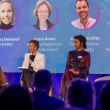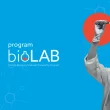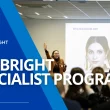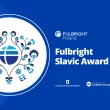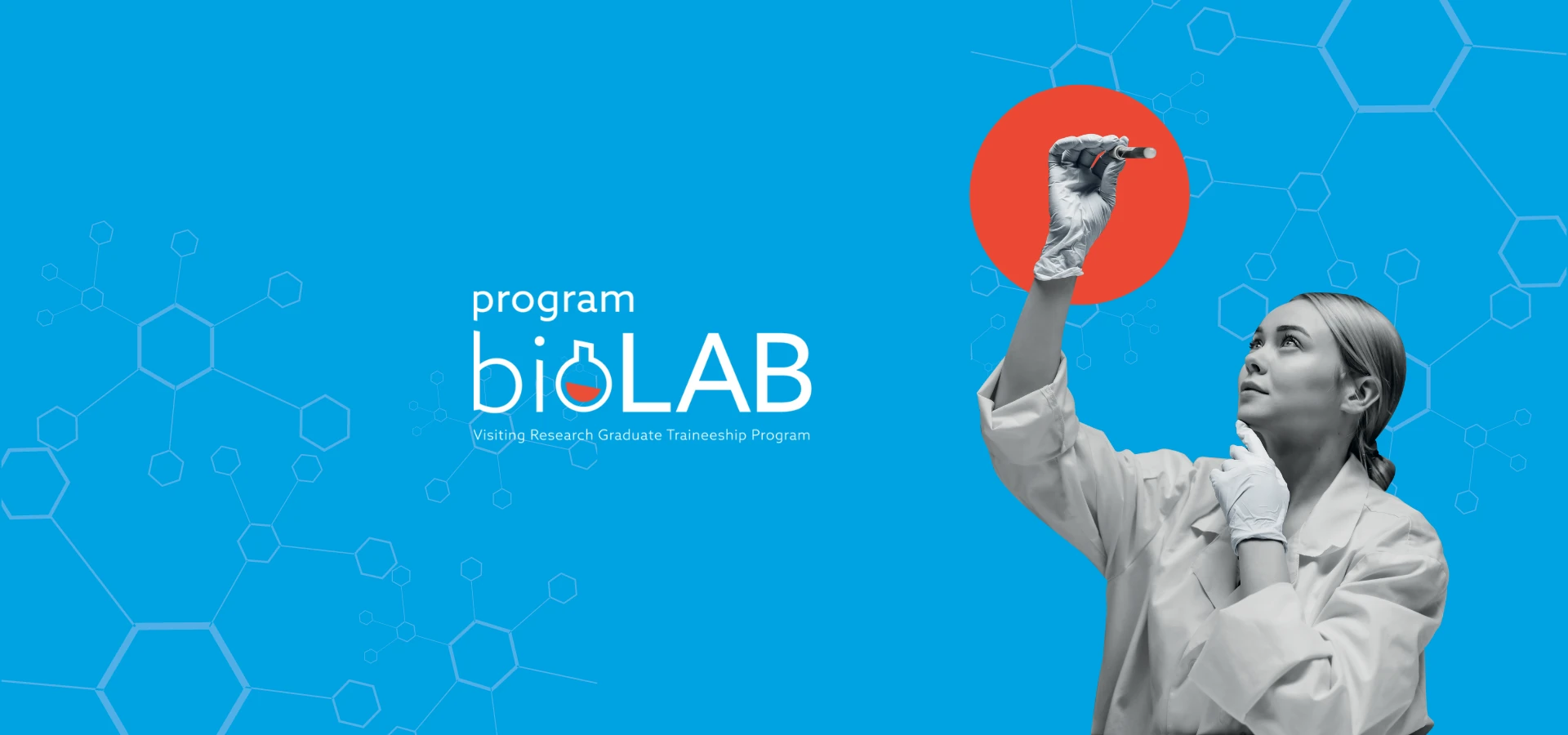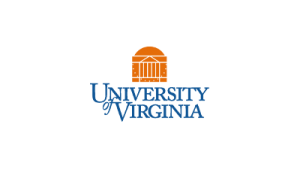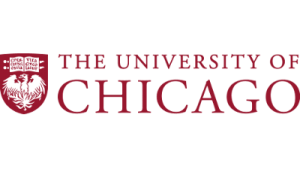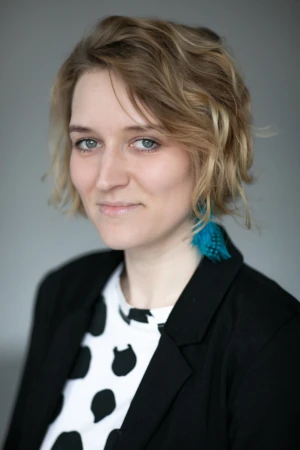The BioLAB Program offers one-year long (July to June/July) research traineeships to students enrolled in a Master or PhD degree programs in Poland in life sciences, biophysics or medical fields of study. Traineeships will be completed at one of the four host institutions in the U.S.: University of Virginia, University of Chicago, Oklahoma Medical Research Foundation and UT Southwestern Medical Center.
The application period is now closed. The call for applications for the 2025-26 BioLAB Program will be announced in October 2024.
The BioLAB Program (Visiting Research Graduate Traineeship Program) started in 2001 at the University of Virginia under the leadership of Professor Zygmunt Derewenda. In 2006, the University of Chicago became the second host institution in the United States, followed by the Oklahoma Medical Research Foundation in 2013 and University of Texas, Southwestern in 2014.
Approximately 20% of BioLAB program’s graduates continued their studies at the Ph.D. level in the U.S., and another 20% were accepted to the top universities and research institutions in Europe, including Oxford, Cambridge, Max Planck and ETH. Overall, more than 90% of BioLAB participants have continued their careers at a Ph.D. level.
The program participants’ contributions include co-authoring numerous papers based on the research they conducted in the U.S.
The Polish-U.S. Fulbright Commission has administered the BioLAB Program since 2013. Grants are fully funded by the host institutions.
Call for applications
The application process for the 2024-25 academic year is open from October 10, 2023 to February 1, 2024, at 11:59 PM Polish local time.
Duration and planned number of placements
Internships are offered for 11-12 months. In justified cases, there is a possibility to extend the internship for one additional year.
There are approximately 40-45 positions (this number may change).
Who are we looking for
We are looking for students:
- Specializing in life sciences, biophysics and medical fields of study,
- Passionate about research and experienced in lab work,
- Maintain a high grade point average (around 4.0).
- Willing to commit to a one-year stay in the US and intensive, time-consuming laboratory work.
The Commission welcomes applications from all candidates regardless of race, ethnicity, national origin, gender identity and expression, sexual orientation, age, religion, geographic location, socio-economic status and physical or mental ability.
Participation in the program includes
A one-year research traineeship in a laboratory setting. The BioLAB Program offers the opportunity to contribute to significant research projects while being mentored by experienced professionals. In certain instances, the research outcomes may be applicable for inclusion and publication in the candidate’s Master’s or PhD thesis.
Salaries are disbursed every 2 to 3 weeks. Students will hold the status of either a visiting graduate student or a research trainee.
The salary amount is contingent upon the host institution’s location and ranges from 28,000 USD to 35,000 USD per year (students are responsible for any U.S. federal and/or state taxes).
During the traineeship period, students will be enrolled in a comprehensive medical insurance plan provided by the host institution.
The Commission assists students in preparing for their stay in the U.S., while the host institutions ensure they receive continuous support throughout the program.
Eligibility
Individuals eligible to apply for the BioLAB Program have to meet the following criteria:
- Meet formal requirements of a F-1 or J-1 visa,
- Be enrolled in a graduate program where their major field of study is life sciences, biophysics or medical fields of study (chemistry, biology, biotechnology, medicine, physics, pharmacy, biochemistry etc.),
- Demonstrate knowledge of English proficiency at the B2 level or higher,
- Maintain a high grade point average throughout their studies (a GPA of 4.0 or above is recommended),
- Hold, at a minimum, a bachelor’s degree and, at the time of the interview (March) be enrolled in a Master’s or PhD program (in the case of long-cycle studies – from the 4th year onwards) at a Polish university or research institution and maintain an active student status throughout the BioLAB Program.
Apply
Recruitment schedule
By February 1, 2024
Call for applications for the academic year 2024-25. We accept applications submitted by 11:59 PM Polish local time on the last day of the recruitment period.
Submission of a document indicating which of the projects offered by the host institutions align with your interests (projects will be available on January 15, 2024). The document can be either attached to the application form or sent via email to the program officer no later than February 1, 2024, by 11:59 PM (according to the deadline). This choice is not final and can be modified during the interviews.
Beginning of March 2024
Selected candidates receive invitations for interviews. In the event of a significant number of highly qualified candidates, we may also establish an alternate list.
March 5, 2024
Deadline for submitting transcripts from the winter session for candidates invited to interviews.
March 19-22, 2024
Interviews.
Interviews conducted by BioLAB coordinators – Selection Committee from the host institutions, which includesProf. Zygmunt Derewenda from University of Virginia, Prof. Anthony Kossiakoff from University of Chicago, Prof. Jose Rizo-Rey from University of Texas Southwestern Medical Center, Dr. Umesh Deshmukh from Oklahoma Medical Research Foundation.
If circumstances allow, the interviews will be held in Warsaw, Kraków and Gdańsk. However, if the Selection Committee cannot travel to Poland, the interviews will be conducted online via Zoom, following the plan provided by the program officer.
There are approximately 60 positions available (this number may change). If not all positions are filled after the initial round of interviews, additional online interviews may be scheduled for candidates on the alternate list.
Mid-April 2024
Preliminary results. Sending offers to nominated candidates by host institutions.
End of April 2024
Closing the list of nominated candidates and their assignments to specific laboratories in host institutions.
First half of May 2024
Orientation meeting in Warsaw or in online format.
Beginning of July 2024 – July 15, 2024 at the latest
Departure to the U.S.
Before you start completing the application form
- Read all information on this website and make sure that you meet all eligibility criteria.
- Read the Bylaws of the BioLAB Program.
- Read the Privacy Policy for the BioLAB Program participants.
- If you have any questions, contact the program officer.
Prepare required documentation
All documents should be prepared in English and submitted to the application form.
All attachments should be formatted as a single PDF file, in the following order: CV, transcripts, personal statement, consent for participation. The file should be named with your last name and first name, e.g., “Smith John.pdf.” Separately attach the list of preferred projects (preferred projects can also be emailed to the program coordinator no later than the last day of recruitment).
Curriculum Vitae (C.V.) with a list of academic as well as non-academic accomplishments. Please use the template [.docx].
Bachelor’s diploma with a diploma supplement or transcript, Master’s diploma with diploma supplement or transcript (if applicable) and PhD’s transcript (if applicable).
Personal statement, i.e. a letter indicating candidate’s research interests, with justification, and future career plans. Please use the template [.docx].
Consent for participation in the program signed by the Dean of the Faculty or Vice Dean for Student Affairs from the candidate’s home university as well as thesis supervisor. Please use the template [.docx].
In an application form you can find a list of available projects in which you can participate during your internship at various hosts. You are required to prepare a document (in any format) in which you select your preferred projects and provide justification for your choices, including the benefits of your participation in each project and the contributions you can make. You can select a maximum of five projects, although you can also declare whether you are open to other opportunities within your areas of interest. You should also specify any research areas you do not wish to be considered for (if applicable) and whether you are willing to participate in experiments involving animals such as mice, rats, fish, etc. You can either attach the document to the application form or send it via email to the program coordinator no later than February 1st, by 11:59 PM (in accordance with the application deadline).
Prepare additional documents
You can upload max. 5 additional documents (i.e. certificate of proficiency in English, confirmation of laboratory skills, publications). All attachments should be formatted in one PDF. file. A file should be named by your last name followed by your first name and Supplement i.e.: Kowalski Jan Supplement.pdf
Obtain letters of recommendation
Ask two referees to prepare confidential recommendation letters for you in a PDF. file. If you participated in foreign internship(s), a letter from an internship mentor is welcome. Referee must use the form below to submit the letter. Do not attach recommendation letters by yourself! You must not have access to the letters.
Submit application form
Fill out the application form. You do not have to fill out the application form in one go. You can open an account, save your answers and go back to filling out the application form later. Recommendation letters must be submitted by the referees. You will not be allowed to submit any missing documents after the deadline.
Frequently asked questions
In such a case, you will need to submit your diploma and/or transcript of grades from your Bachelor/Inżynier studies, and then provide an acceptance letter for your Master’s studies as soon as it becomes available (no later than before the interviews).
Due to the specific nature of the internship, which requires the participant to have the necessary knowledge and skills, we accept applications only from students whose study program includes laboratory work. If you are unsure whether your field of study qualifies for the program, please contact the program officer.
The program offers you a year of advanced research experience, allowing you to work on important and challenging projects at one of the top universities or institutions in the United States. Frequently, the research you conduct is published in high-impact journals. In addition to your academic training, this additional year of intensive research experience greatly enhances your competitiveness for admission to the world’s best PhD programs. Our alumni have been accepted by institutions such as the University of Cambridge, Oxford University, the University of Chicago, the University of Virginia, the University of Texas Southwestern Medical Center, the University of Oklahoma, Rockefeller University, Johns Hopkins University, ETH Zurich, and the University of Zurich.
The stipends differ slightly depending on the cost of living: ranging from $28,000-$35,000 per year. This stipend is more than sufficient to fully cover your costs of living, and have spare cash on hand.
Yes, all host institutions offer comprehensive health insurance. You will be informed about the details after receiving a nomination.
Grantees are responsible for travel arrangements and costs. Only the Oklahoma Medical Research Foundation reimburses travel costs.
Once you accept an offer, the host institution will provide you with the visa documentation. Depending on the institution, it will be either the (I-20 form) F-1 or the (DS-2019 form) J-1. The process involves visiting the US Embassy in Warsaw or the US Consulate in Krakow for an interview with the Consul. You will receive all the necessary information from the program officer. You are responsible for covering the costs associated with processing the visa application.
The host institutions do not offer housing, and grantees are responsible for arranging their own accommodation. Nevertheless, each host institution has a robust support system in place to help incoming grantees choose suitable housing, often in the form of shared apartments. If you seek assistance, you should encounter no difficulties in locating suitable housing. The Oklahoma Medical Research Foundation even provides the option of moving into apartments exclusively leased for BioLAB grantees.
Your spouse can apply for an F-2 or J-2 visa to accompany you during your stay in the US. While it is possible for a spouse with a J-2 visa to obtain a work permit (F-2 visa holders are not allowed to work in the US), please note that this process can be time-consuming and challenging. It’s important to keep in mind that your primary commitment should be your work, and the presence of your spouse should not significantly impact it. Additionally, you will be responsible for arranging housing that can accommodate both you and your spouse independently.
This program offers you a distinctive research opportunity as a grantee. You will be treated on par with graduate students, and the expectations regarding productivity will be the same. Although there is no fixed time requirement for your laboratory work, you are expected to work diligently to meet your objectives. Similar to other graduate students, there may be occasions when you’ll need to work in the evenings and occasionally on weekends. This dedication is ultimately for the benefit of your training and education, so it’s important to be prepared for such commitments. If you are hesitant about this level of commitment, it is advisable not to apply to the program.
There are no designated vacation days, but national holidays provide opportunities for travel, etc. If you manage your time efficiently and make additional efforts to make up for it, it is typically feasible to arrange brief breaks that will enable you to explore the country and meet up with friends at other locations.
Unfortunately, that’s not the case. The primary consideration is the compatibility with a project. For example, if you specialize in ‘dry’ bioinformatics, but there are no projects available in this area, you may not receive an offer to join the program. Additionally, when multiple exceptional candidates apply for specific projects, the mentor will choose one, which may not leave a suitable alternative for others. This underscores the importance of the interview process to assess your flexibility.
No, there are no specific provisions. However, your health condition should not be such that it will hinder your ability to work in the laboratory. Each institution has resources available to provide assistance, but there are no arrangements for extended medical leave. While such situations are uncommon, we will strive to be flexible. Nevertheless, if your health is at risk, it may be necessary for you to return to Poland for proper medical attention. Although you may not feel compelled to disclose your health condition during the interview, the Selection Committee is prepared to offer guidance if you choose to discuss it. You will be required to provide details confidentially to our Student Health Centers prior to enrollment.
Several projects receive a high number of applications each year. Therefore, it’s important to be open to flexibility, as there will likely be equally suitable alternatives available to you. You may have broad interests in various research areas or be particularly interested in acquiring new techniques. This is the purpose of the interview process, providing an opportunity to explore your options. If you have strong preferences against certain areas, we understand and respect that, but please be aware that it may limit your opportunities.
Testimonials
For testimonials go to Polish version of this page.
Webinar recordings
The YouTube playlist below contains recordings of information webinars and Q&A with alumni of the Program. We encourage you to listen to learn more practical information about the BioLAB Program.


